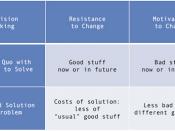Power & Empowerment
In many articles, books, journals, seminars etc, managers are provided with new ideas but can we accurately tell where those words like Authority, Empowerment and Coordination truly point. How they can be put into practice? In this essay I attempt to define what the above mentions terms should be assessed as.
Authority's definition is the power to make decision, which guides/supervises the actions of another, in other words, a typical relationship between superiors and subordinates. The superior one constructs and corresponds the orders to the subordinate, with the expectations of its fulfillment within a given period of time. Therefore authorities are purely based on behavioral views, the superiors behavior for the subordinate is looked upon as a single decision for which for him or her there is no alternative but the accept it, this is somewhat a patterned behavior.
Furthermore, one of the most visible aspect of a subordinate is the willingness to accept the decision made by the superior.
Power or authority has three functions, i.e. responsibility, expertise and coordination that are noticed to be effective on relationship.
Here comes the idea of "teaching people to lead themselves" in the work place, or empowering employees to make decisions that will affect the running of the organisation, and ultimately, their careers. Common belief is that organisations function best when the top management holds decision-making power as first priority for success because it focuses this power to the only body truly capable of making educated, goal-achieving decisions leading to such actions. This view stands open to much criticism. Does a specific organisational body must exist with given the ultimate decision-making power, so that important decisions cannot be passed off to others? Or organising the decision-making process can prevent this problem?
The process could be structured, so that each...


